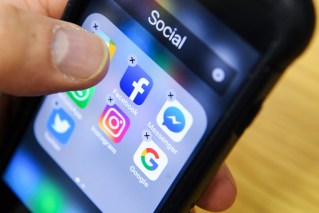Not long after Elon Musk took over Twitter a few weeks ago, people vowed they would leave the platform.
Among those deactivating their accounts now are high-profile celebrities – a few said they would not be waiting around to see what Mr Musk, a self-proclaimed “free speech absolutist”, would do with it.
Enter Mastodon, a platform that looks and functions like Twitter, but isn’t owned by a single person.
German software engineer Eugen Rochko started Mastodon as an open-source project in 2016.
Mr Rochko had been active on Twitter in 2008, but eventually became “dissatisfied” with the state and direction of the social media platform.
Tweet from @tonibraxton
Mastodon was developed with the belief that instant communications from around the world were “too crucial for modern society to belong to a single commercial company”.
The microblogging platform, which promises to be user-friendly, doesn’t belong to Mr Rochko, or anyone.
In October 2016, Mastodon launched publicly and Mr Rochko was supported through Patreon.
In 2021, it was incorporated as a non-profit.
Mastodon says it has more than 863,000 active users, although that number has gone up dramatically since people started abandoning Twitter.
What is Mastodon?
Mastodon describes itself as a “free, open-source decentralised social media platform”.
It does look a lot like Twitter, which is perhaps why people are turning to it as an alternative, but it works a little differently.
Mastodon works on individual servers, says associate professor of media and communication at Swinburne University, Diana Bossio.
“Rather than being a centralised, Twitter-type thing, people can create individual communities and individual rules,” she said.
Twitter is more of a “free for all” given it has a centralised server, she said.
On Mastodon, people are promised control over their timeline, with no algorithms or ads to “waste” time.
“Follow anyone across any Mastodon server from a single account and receive their posts in chronological order, and make your corner of the internet a little more like you,” the sign-up page promises.
People who create their own server are the ones in control – they pick the rules and moderate their community how they see fit, and it’s advised people pick a server with rules they like.
Mastodon supports audio, video and picture posts, accessibility descriptions, polls, content warnings, custom emojis, thumbnails and avatars.

People have left Twitter, or say they are, since Elon Musk took over. Photo: Getty
Will Twitter die?
Time will tell what Twitter turns into, however, since the start of social media we have seen platforms evolve into giants and watched others fall spectacularly.
Tumblr and MySpace were both hugely influential at one point, Associate Professor Bossio says.
“The rise of both platforms is just part of the history of technology.”
There comes a point where people decide it’s time to leave the platform, due to ownership changes or the algorithm getting a shake-up.
“There’s a point where users decide that the platform doesn’t hold true to what they thought was legitimate about it,” she said.
“Maybe they don’t trust [it] any more, and don’t [feel] safe on the platform.”
In the days since Mr Musk took over Twitter, hundreds of thousands of people have flocked to Mastodon.
It also saw a surge in people coming over from Twitter in 2017, just months after launching, when Twitter changed how replies were shown.
Tweet from @Carter_AndrewJ
A place for nuanced conversations?
One of the main concerns people have with Twitter now that Mr Musk is at the helm is free speech.
Even previously, Twitter was divisive and sometimes it just wasn’t a great platform to be on, Associate Professor Bossio said.
“When Musk is talking about free speech, he’s not talking about the people who are actually most at risk from an unmoderated platform,” she said.
Research has shown time and time again it’s not billionaires who are most at risk, but minorities, Associate Professor Bossio said, like women, people of colour and members of the LGBTQ community.
Mastodon differentiated itself from Twitter and its problem with trolling and less savoury discussion way back in 2017.
Several articles were written back then suggesting that Twitter users who were fed up with neo-Nazis and trolls make the switch.
“I hope people will have more interesting conversations, more nuanced conversations, with less misunderstanding,” Mr Rochko told Wired back in 2017.










